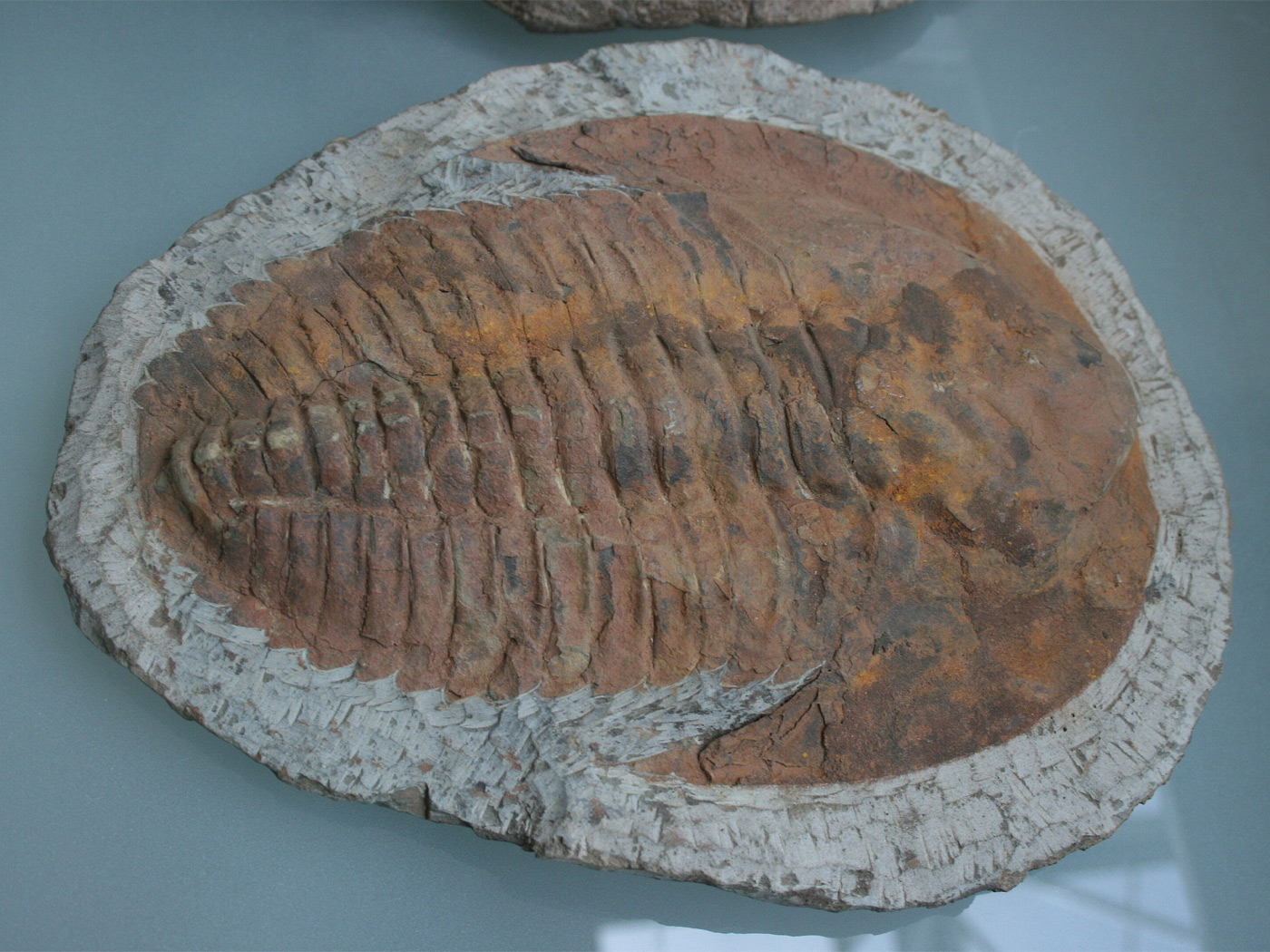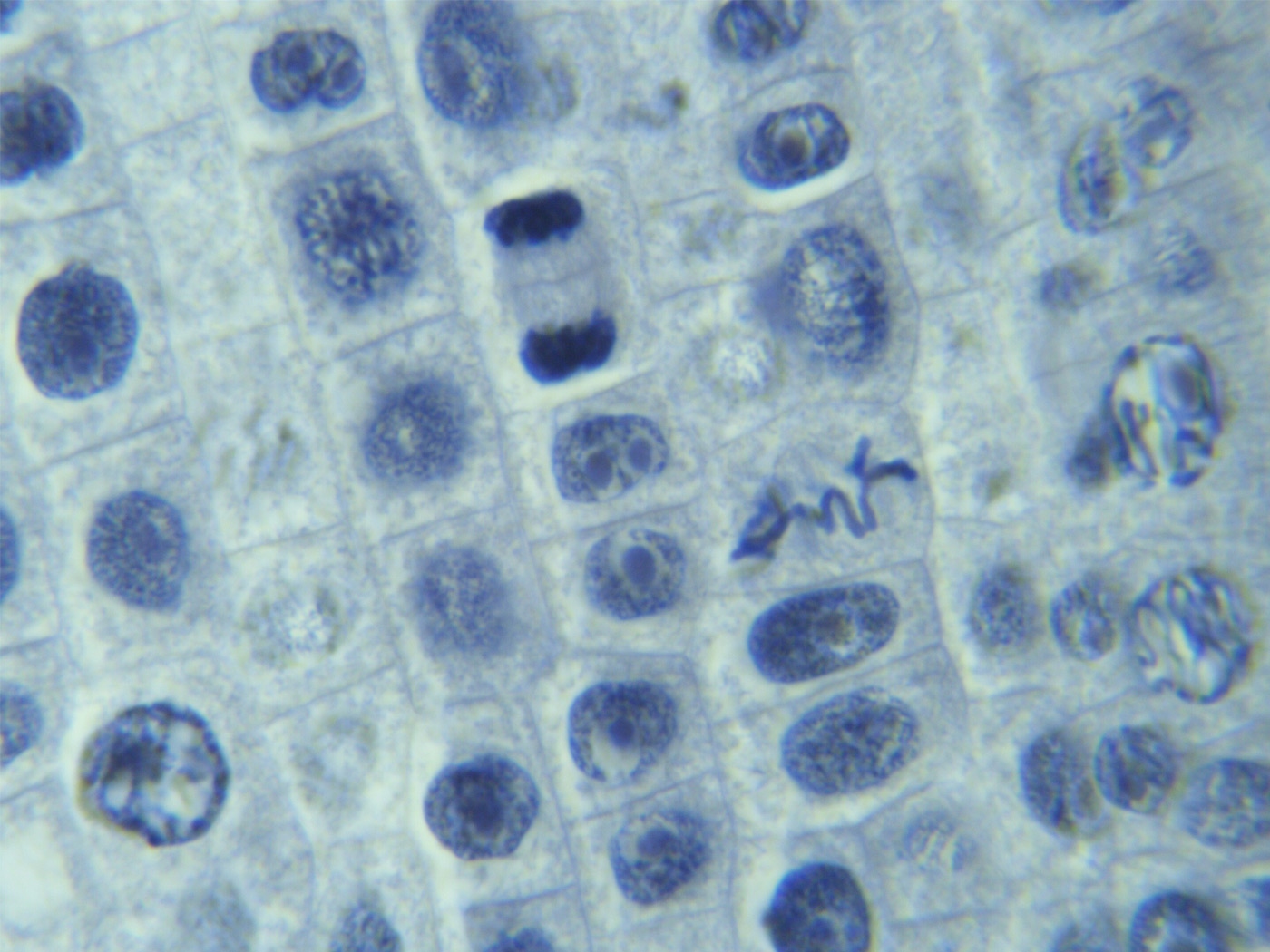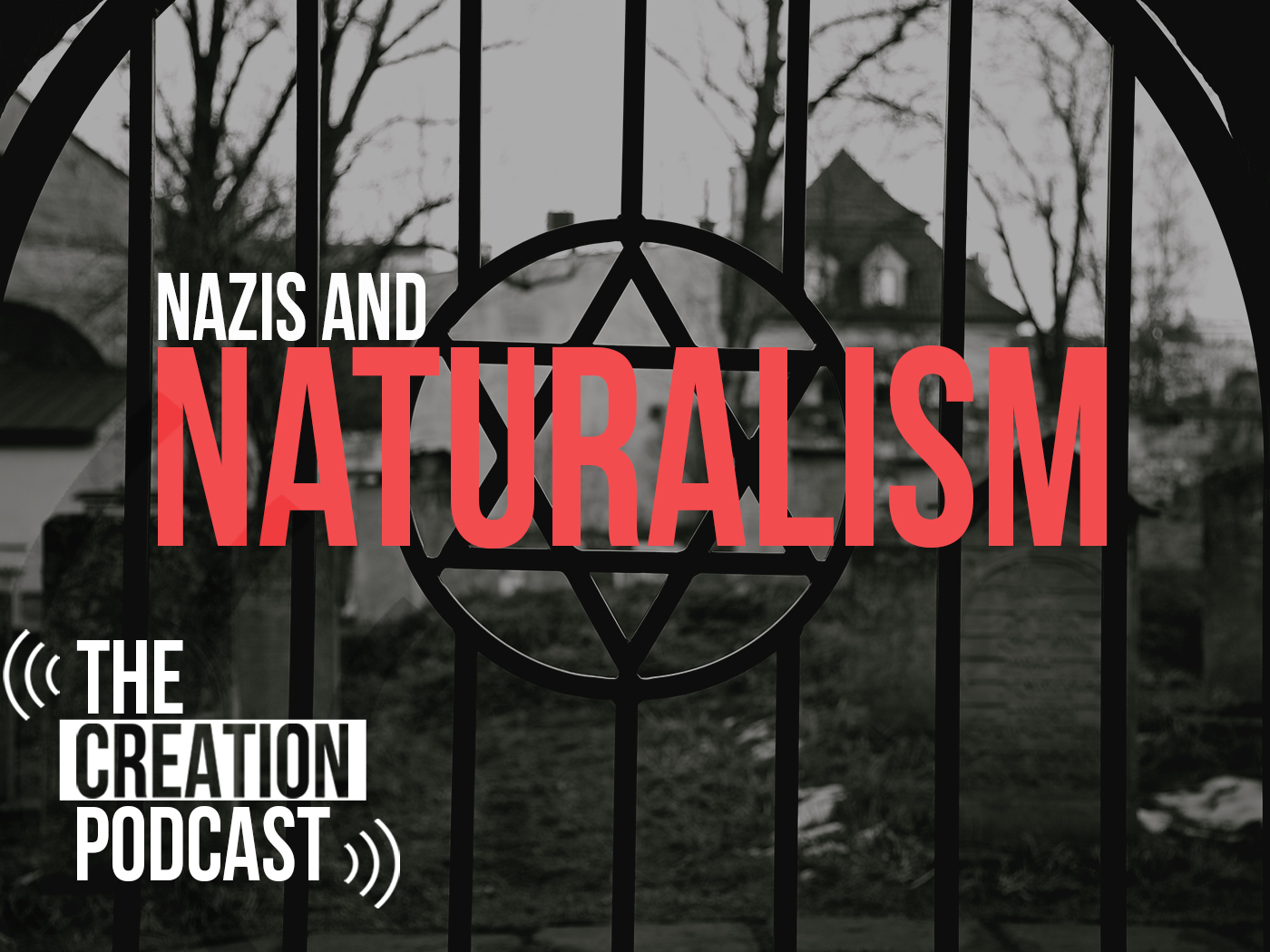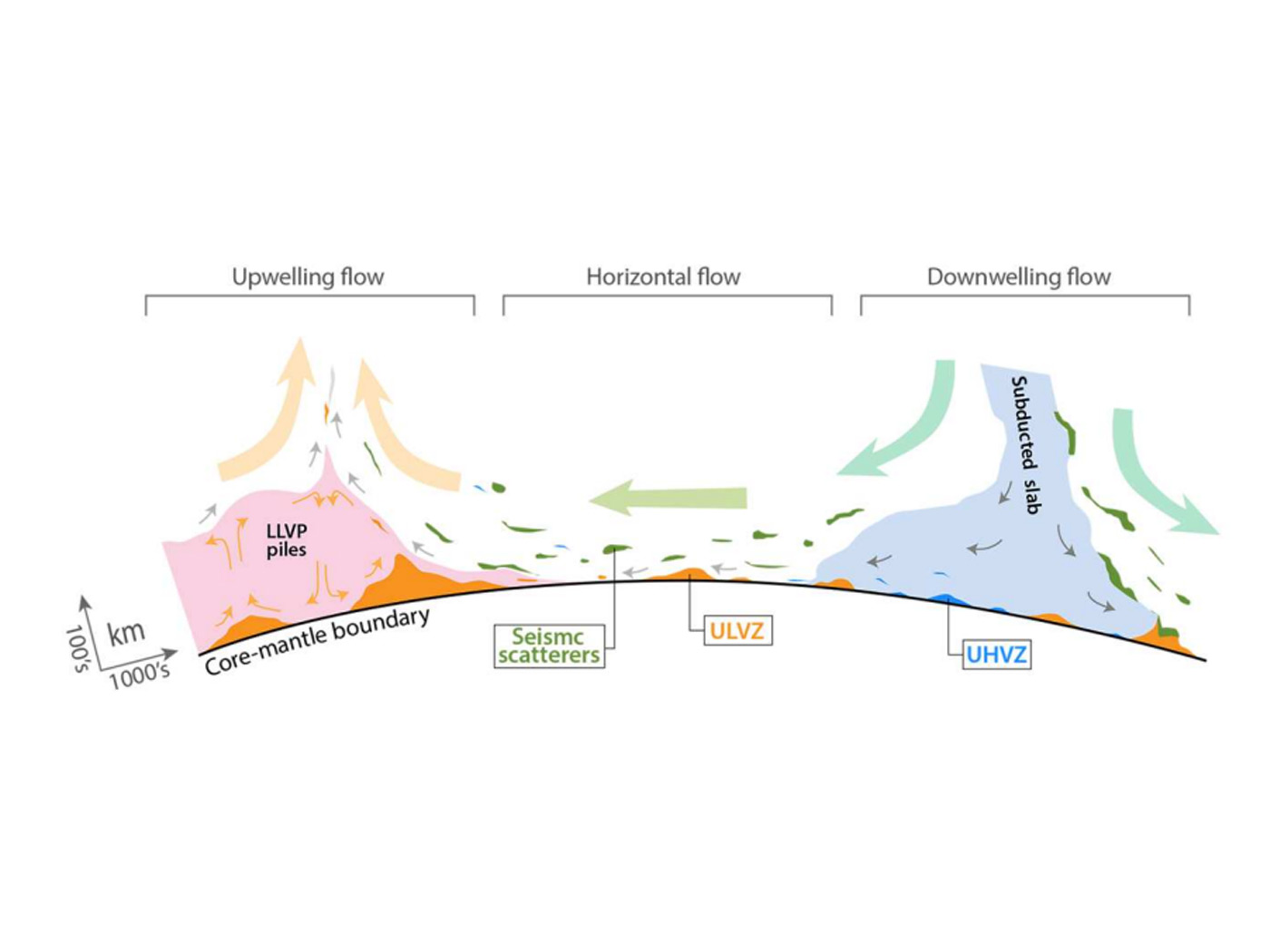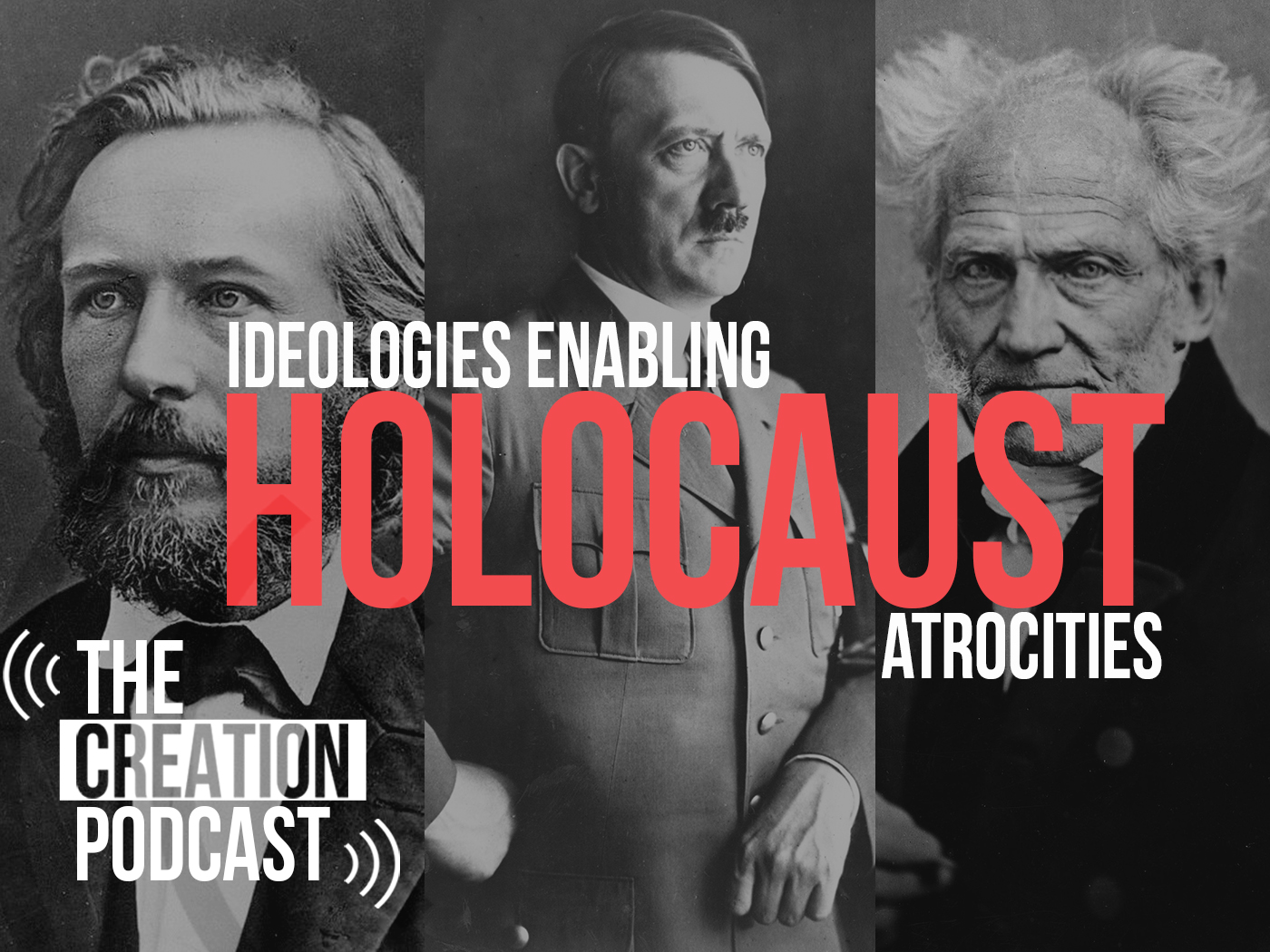When was the last time that you saw a bird—perhaps a grackle or a pigeon—and shuddered with the scary realization: That could have been me! Maybe you have never thought about a grackle that way.
Yet it is true—God did not need to make us just as we are. He had many other options. God could have created each of us as a bird, a butterfly, or a basalt rock. He could have made you or me a uranium-bearing rock, a nudibranch, an ice worm, a quince fruit, an ultraviolet ray, or an egret.1 Yet, He deliberately chose otherwise. He chose to make us one-of-a-kind humans. What a fearful and wonderful reality!
Thinking about how God uniquely planned for us and how we are precious to Him is biblically logical. But it does not logically fit the impersonal randomness of evolutionary thinking.
At a recent apologetics conference, a Genesis skeptic approached me with doubt and anger about the world and about God, attacking biblical truth and God’s character. He accused “the Christian God” of being impersonal—of not “personally loving individuals.”
Perceiving the skeptic as one who questioned his own value as a person, I reminded him that God commended His love to all of us—even the skeptic—by having Christ voluntarily die for the sins of each of us, to pay the just price for personal forgiveness, reconciliation with God, and an abundant life (here and later). That proves God’s love for us individually because Christ died for each of us.
When confronted with this truth, the skeptic coldly retorted, “But that is not personal—the Bible teaches that Jesus died for all of humanity simultaneously, so it’s not like He did it just for me; there is nothing personal about that. If I didn’t exist it would still be the same, so there is nothing personal about that kind of love.”
How would you reply to this skeptic’s accusation that God is “not personal” in His love?
This was my answer: “The proof that God cares about you, in an absolutely personal way, is in the obvious fact that He providentially, thoughtfully, and caringly made you. Your very existence is proof of how personally God loves you. It doesn’t get any more personal than God making you the unique person that you are! If God had neglected to make you as you are or had made you something else, such as a lizard, you wouldn’t even have the ability to falsely accuse Him of being impersonal! God had lots of options—He did not have to make you who you are.”
At this point the skeptic digressed into some excuses—what the Bible calls “science falsely so called” (1 Timothy 6:20)—that he had for disbelieving Genesis. None of the excuses were scientifically or logically sound, and all of them have been refuted in prior issues of Acts & Facts.
The skeptic had brushed aside the obvious truth that God made him as the unique person that he was, even though God could have made him as a gull or a gooney bird. Though this skeptic professed to honor “the historical Jesus,” he had no logical explanation for Christ’s trusting in the Genesis account of creation as authoritative and reliable.
The practical apologetics lesson should be obvious: If we deny the authoritative truth of Genesis, then we have no sure foundation for creation truth. And we, likewise, have no sure foundation for the unique worth of any one human being—you, me, or anyone else.
If Genesis is wrong about creation (which is impossible), I cannot prove that I am truly worth anything, much less precious to God, as the unique person that I am.
Five of our Creator’s actions prove that He is worthy of our thanksgiving for making us exactly as we are: 1) God chose to make us; 2) God controlled how we were made; 3) God condemns ingratitude; 4) God cares for our needs; and 5) God cherishes our uniqueness, unlike most of the world around us.
God chose to make each one of us a unique creation.
God made many careful and complicated decisions, literally thousands of years ago, in order to providentially and procreatively make each of us, personally, as who He wanted each of us to be.
Science fiction writers sometimes imagine “alternative” universes, qualifying their fanciful fantasies with the phrase “what if?” God, however, really can imagine other options, including all of the “what if” contingencies, all the possible domino-chain causality scenarios. God can truly tell us what consequences would have followed events that never really happened.
Christ, as omniscient deity, knows all of the past, present, and future. He even knows what would have and could have occurred if this or that detail of real-world history had been different. For example, Christ did not exaggerate when He described how Sodom and Gomorrah would have reacted to the miracles He powerfully performed in the region of Galilee (Matthew 11:23). Likewise, foreknowing literally all of the possible options and outcomes, our Creator purposefully chose to make you and me exactly as we are. Considering the “what if” scenarios is intellectually “fearful,” yet appreciating God’s actual choices is “wonderful.”2
God controlled how we each were made.
How did God mastermind our procreative origins? Consider Psalm 139—how we are “fearfully and wonderfully made,” biologically and biochemically, inside the specific mother whom God selected, to make each of us who we are. That “fearful and wonderful” development did not stop at birth. God’s biochemically programmed instructions equip and adjust our physical bodies throughout our lives.3
But God’s control of our existence began thousands of years before we were physically procreated inside our respective mothers. Human life began on Day Six. Parental procreation began in Genesis 4. All of us descend—through literally hundreds of ancestral lines—from eight Ark passengers who sailed the one-of-a-kind high seas about 4,500 years ago. The social details of our genealogical ancestries thereafter—even ignoring the biogenetics—are astounding beyond any fiction novel, more detail-laden than any supercomputer’s database.
The family history facts unique to each of us are so detailed that we cannot learn them all during this earthly lifetime. The best that we can hope for, realistically, is to discover some informative family history records and to learn from them many examples of how God worked in human history to make us who we are.
How did God providentially orchestrate the circumstances of our parents’ meeting each other, or their parents, or our great-great-great-great grandparents? What close calls with death did your ancestors encounter before they contributed to your personal genealogy? What if God had let someone die a few years earlier? You would have never existed!4
When we fail to thank God for His creation, then God condemns our ingratitude.
When God condemns something, whether an action or inaction, that proves its importance. What about the ingratitude that we, as unique creations, demonstrate when we fail to thank Him as our Creator?
Because that, when they knew God, they glorified him not as God, neither were thankful; but became vain in their imaginations, and their foolish heart was darkened. (Romans 1:21)
Obviously, we should thank God for making us, because failure to thank Him is wrong—so wrong that the integrity of our minds and hearts are at risk of becoming “reprobate” (Romans 1:28).
God demonstrates how much He values us through caring for our needs.
Most Christians are well aware that the Lord is “our shepherd” (Psalm 23; John 10). He cares for our personal needs, like a good shepherd cares for every single sheep (Luke 15:4-7), not just 99 percent of them!
God’s care for us displays our worth to Him—so much more than sparrows (Matthew 10:29-31; Luke 12:6-7) or field lilies (Matthew 6:28; Luke 12:27).
God cares for our physical and spiritual needs better than any human parent (Luke 11:11-13). God regulates climate dynamics that provide rain for both the just and the unjust. Seasonal cycles and nourishing food are both continuing proofs of God’s providential care for human creatures.5
God cherishes our uniqueness.
Even more amazing than God’s care for us—His human “sheep”—is how He cherishes our uniqueness. No one is exactly like you, and God designed you that way. God prizes variety. Even in something as supposedly “simple” as a snowflake (just a frozen water crystal!), God proves that He appreciates and values uniqueness. No two snow crystals are the same.
Ice crystals are composed of simple, repeated internal patterns that produce beautiful, external shapes. And built into the laws that govern ice crystal growth patterns are temperature dependencies that add filigrees to the basic hexagonal form. Columnar shapes, needle shapes, plate shapes, stellar shapes, and dendritic shapes are just some of the additional patterns in which snow crystals grow. In fact, because of the myriad of possible combinations of the millions of individual molecules that make up a single ice crystal, it can truly be said that no two snow crystals are exactly alike! 6
Who sees and appreciates the countless snowflakes that fall on earth? Only God. Yet He treasures them (Job 38:22); each one is singularly fashioned by His artistic genius. Most of these fragile and ephemeral snowflakes are never seen by humans. The rare few that are observed by human eyes (and even fewer photographed by microscopists) are quickly forgotten, no matter how beautifully and carefully they were made by God.
And, sadly, so it is with human lives—most people will never know that you (or I) exist, and most of the few who see us, for a while, will not care much. And most will quickly forget us.
But not so with God!
While God appreciates the “simple,” yet unique, snowflakes that are ignored by busy humans, God treasures our personal lives (created in His image) infinitely more, as if we were His precious jewels (Malachi 3:17). In fact, He providentially planned our lives to be exactly what they are, and if we belong to Him, He artistically “works together for good” the component details of our lives (Romans 8:28).
Surely we should thank Christ for being our very personal Creator. So the next time you see a grackle, think thankfully for a moment, “That could have been me!” And be grateful to your Creator, who made you a unique, one-of-a-kind creation.
References
- These six options produce the acrostic UNIQUE.
- See Psalm 139:14 and Matthew 11:23, especially in light of Colossians 1:12-17 and John 15:16.
- Guliuzza, R. 2009. Made in His Image. Dallas, TX: Institute for Creation Research, 32-33.
- For example, see Johnson, J. J. S. 2011. Czech into Texas, at Last! From Bohemian Roots, to a Moravian Log Cabin, to the Lone Star State. Ceské Stopy [Czech Footprints]. 13 (1): 15-22.
- See Isaiah 55:10-11 and Matthew 5:45; see also Klevberg, P. and M. J. Oard. 2012. The Little Ice Age in the North Atlantic Region, Part III: Iceland. Creation Research Society Quarterly. 48 (1): 224-238. See also Acts 14:17, as discussed in Johnson, J. J. S. 2011. Our Daily Bread: How Food Proves God’s Providence. Acts & Facts. 40 (4): 8-9.
- Vardiman, L. 2007. Microscopic Masterpieces: Discovering Design in Snow Crystals. Acts & Facts. 36 (12): 10. See also Libbrecht, K. 2003. The Snowflake: Winter’s Secret Beauty. Stillwater, MN: Voyageur Press, 1-109.
* Dr. Johnson is Associate Professor of Apologetics and Chief Academic Officer at the Institute for Creation Research.
Cite this article: Johnson, J. J. S. 2012. Of Grackles and Gratitude. Acts & Facts. 41 (7): 8-10.









